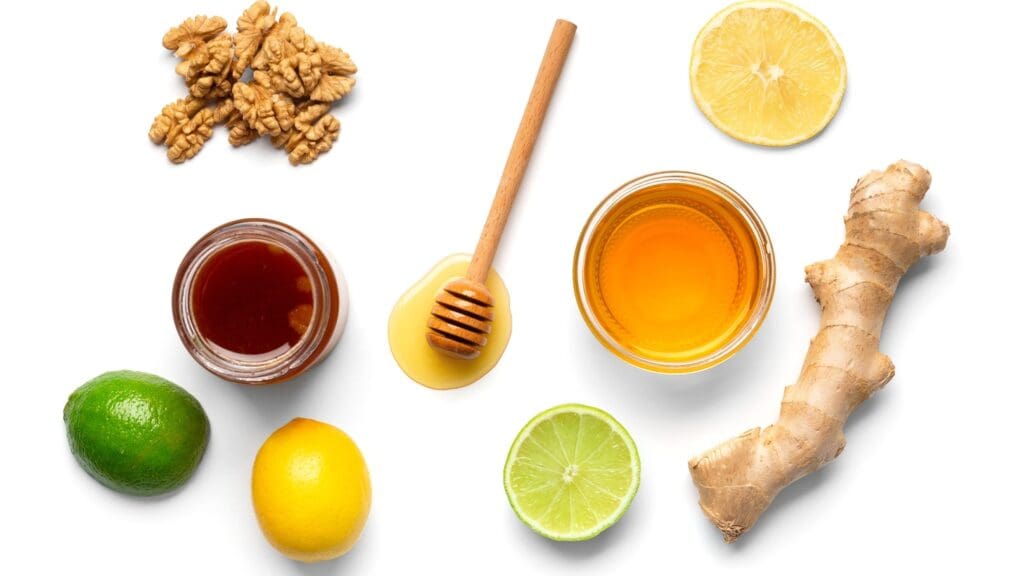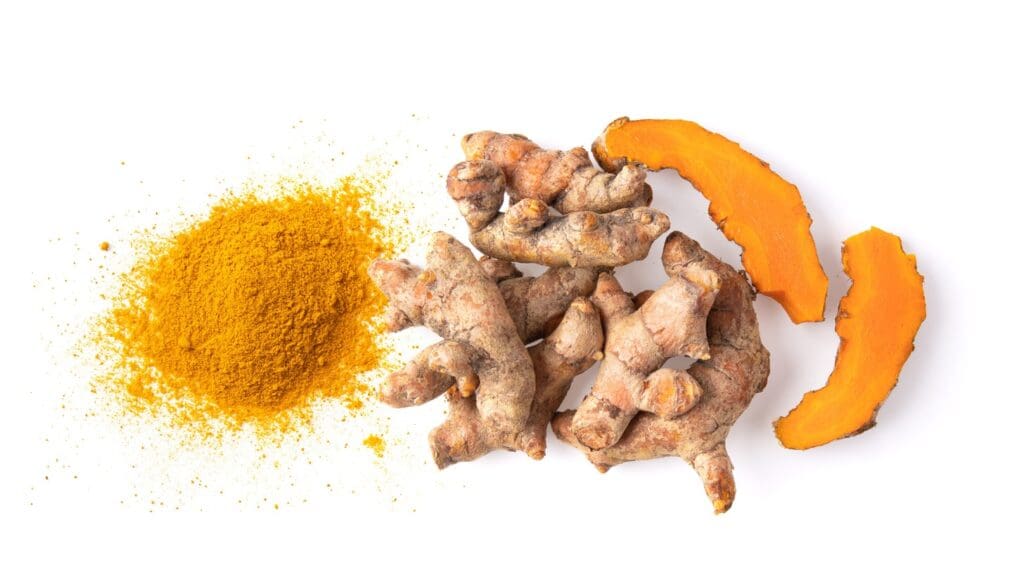Last Updated on November 27, 2025 by Bilal Hasdemir

Looking into natural ways to fight cancer, we see a growing interest in herbs. A survey found that 46 percent of mesothelioma patients tried cancer treatment home remedies, including herbs.
At Liv Hospital, we believe in a complete approach to health. We focus on patient wellbeing and medical innovation. We’ll look at herbs that might help with cancer symptoms and shrinking tumors.
Key Takeaways
- Certain herbs have shown promise in complementing conventional cancer treatments.
- Recent studies have highlighted the benefits of natural remedies in symptom relief.
- A complete approach to cancer care may include natural therapies.
- Liv Hospital is committed to providing world-class healthcare with complete support for international patients.
- Patients are increasingly seeking natural ways to support their cancer care journey.
The Science Behind Natural Cancer-Fighting Remedies
Cancer is a big health problem, and scientists are looking at natural remedies to help. They are studying anticancer herbs to see if they can prevent or treat cancer.
Growing Interest in Complementary Approaches
More people want to use natural therapies with their cancer treatments. They hope to get better results and feel less sick from treatments. Studies suggest some natural things can make treatments work better and be safer.
How Natural Compounds Target Cancer Cells
Natural compounds in cancer fighting herbs work in different ways. They can reduce inflammation, boost the immune system, and make cancer cells die. For example, curcumin in turmeric might stop cancer cells from growing and make them die.
The Importance of Evidence-Based Information
Even though natural remedies seem promising, we need solid evidence. Not every natural remedy works, and some can harm or interfere with treatments. So, always talk to a doctor before adding what herbs fight cancer to your treatment.
Learning about the science behind natural remedies helps us understand their good and bad sides. This way, we can make smarter choices about using them in cancer care.
Home Remedies Cancer and Tumors: Mechanisms of Action
To fully leverage the herbs to fight cancer and shrink tumors in cancer treatment, we must understand their mechanisms of action. Various home remedies and herbs have been studied for their anticancer effects. Research has uncovered several key ways they may influence cancer development and progression.
Anti-inflammatory Properties
Chronic inflammation is a known risk factor for cancer development. Many anti-cancer herbs possess anti-inflammatory properties. This can help create an environment less conducive to tumor growth. For instance, turmeric contains curcumin, a compound known for its potent anti-inflammatory effects.
Immune System Enhancement
A robust immune system is key in fighting cancer. Certain herbs, such as astragalus, have been shown to enhance immune function. This can help the body better identify and destroy cancer cells. By supporting immune health, these herbs may play a role in cancer prevention and treatment.
Antioxidant Effects and Free Radical Scavenging
Oxidative stress and free radical damage can contribute to cancer initiation and progression. Cancer herbs often contain antioxidants that neutralize free radicals. This can potentially reduce the risk of cancer cell formation and growth. Herbs like rosemary and thyme are rich in antioxidants, contributing to their anticancer properties.
Apoptosis Induction in Cancer Cells
Apoptosis, or programmed cell death, is critical in eliminating damaged or malignant cells from the body. Some herbs to shrink tumors have been found to induce apoptosis in cancer cells. This helps control tumor growth. For example, certain compounds in ginger have been shown to promote apoptosis in various cancer cell types.
By understanding these mechanisms, we can better appreciate how various home remedies and herbs may contribute to a cancer support plan. While these natural approaches show promise, it’s essential to consult with healthcare professionals before incorporating them into a treatment regimen.
Turmeric (Curcumin): The Golden Anti-Cancer Spice
Turmeric is known for its bright yellow color and health benefits. It’s a natural remedy for fighting cancer. Turmeric has a compound called curcumin, which fights inflammation and protects against damage.
Research-Backed Benefits for Cancer Prevention
Studies have looked into curcumin’s role in preventing cancer. Curcumin can stop cancer cells from growing and make them die in cancers like breast, lung, and colon.
We’ll look at the science behind curcumin’s cancer-fighting abilities. Its anti-inflammatory effects help lower cancer risk by reducing chronic inflammation.
How Curcumin May Help Shrink Tumors
Curcumin might help tumors shrink by stopping new blood vessels from forming. This cuts off the tumor’s food supply, slowing its growth.
Curcumin also makes cancer treatments like chemo and radiation work better. It makes cancer cells more sensitive to these treatments.
Recommended Dosage and Preparation Methods
To get the most from turmeric, it’s important to use it right. Adding black pepper boosts curcumin absorption.
Here are some ways to use turmeric:
- Add turmeric to meals like soups, stews, or curries.
- Make turmeric tea by steeping powder or root in hot water.
- Consider curcumin supplements, but talk to your doctor first.
The right amount of curcumin varies, but 500 mg to 2,000 mg daily is common. Always check with your doctor before starting supplements.
Ginger and Garlic: Powerful Anti-Cancer Kitchen Staples
Ginger and garlic are key in fighting cancer. They are common in many dishes and have shown to have anti-cancer effects.
Anti-Inflammatory and Anti-Nausea Effects of Ginger
Ginger is known for its anti-inflammatory powers. This can help prevent cancer. It also helps with nausea, a common side effect of cancer treatment.
Ginger’s Active Compounds: Gingerol and shogaol in ginger can kill cancer cells and stop tumors from growing.
Sulfur Compounds in Garlic and Cancer Prevention
Garlic has sulfur compounds that fight cancer. These compounds protect cells and stop cancer cells from growing.
Garlic’s Cancer-Fighting Mechanisms: Garlic boosts the immune system, helping it fight cancer better. Eating garlic regularly may lower cancer risk.
Practical Ways to Incorporate Ginger and Garlic Daily
Adding ginger and garlic to your diet is easy and tasty. Here are some ideas:
- Add fresh ginger to your tea or smoothies.
- Use garlic in your cooking, such as in soups, stir-fries, and salad dressings.
- Make a ginger and garlic paste to use as a marinade for meats or vegetables.
| Ingredient | Preparation Method | Potential Benefit |
|---|---|---|
| Ginger | Tea, smoothies, or stir-fries | Anti-inflammatory, anti-nausea |
| Garlic | Soups, salad dressings, roasted | Cancer-fighting sulfur compounds |
Adding ginger and garlic to your meals can make them taste better. It also may help fight cancer.
Astragalus: Supporting Conventional Cancer Treatment
Astragalus, a traditional Chinese medicine herb, is getting more attention for helping with cancer treatment. It has been used for centuries to boost health and immunity. Recent studies are finding its benefits for cancer patients.
Traditional Uses and Modern Research Evidence
Astragalus has long been used to strengthen the immune system and improve health. Modern research is confirming its benefits in cancer care. It may help the body’s immune response, leading to better outcomes for cancer patients.
Recent studies have looked at astragalus’s bioactive compounds. These include polysaccharides and flavonoids, which may fight cancer. These compounds help the immune system, making it stronger against cancer cells.
Reducing Chemotherapy Side Effects
Cancer patients often face challenges with chemotherapy side effects. Astragalus has been studied for reducing these side effects. It could improve patients’ quality of life.
Research suggests astragalus may lessen nausea and vomiting from chemotherapy. It may also reduce fatigue, a common issue for cancer patients. By easing these side effects, astragalus could support cancer treatment.
Immune System Modulation Benefits
Astragalus is known for its immune-modulating effects. This could be very helpful for cancer patients. It may help the body fight cancer cells better.
Studies have found astragalus increases immune cell activity. This includes natural killer cells and macrophages. This immune boost could lead to better outcomes for cancer patients by strengthening their defenses.
Adaptogenic Herbs for Cancer Support: Ginseng and Ashwagandha
Adaptogenic herbs like ginseng and ashwagandha are key in cancer support. They’ve been used for centuries to boost well-being and resilience. Understanding their benefits in cancer care is vital.
How Adaptogens Help Normalize Body Functions
Adaptogenic herbs help the body adapt to stress. This is true for physical, emotional, or environmental stress. In cancer treatment, they may help restore body functions disrupted by the disease or treatment.
Key benefits of adaptogenic herbs include:
- Stress reduction and resilience enhancement
- Improved energy levels and reduced fatigue
- Enhanced immune function
- Better overall well-being during cancer treatment
Ginseng’s Anti-Fatigue and Anti-Cancer Properties
Ginseng is studied for its benefits in cancer care. It may reduce fatigue, a common side effect of treatment. Some studies also suggest it could have anti-cancer effects, slowing tumor growth and improving survival rates.
Ginseng’s active compounds, ginsenosides, are thought to be behind its benefits. More research is needed, but the current evidence is encouraging.
Ashwagandha for Stress Reduction During Cancer Treatment
Ashwagandha is another adaptogenic herb with cancer support benefits. It’s known for reducing stress, which is critical during treatment. Ashwagandha can lower cortisol levels, improve sleep, and boost resilience.
By reducing stress, ashwagandha may improve treatment outcomes and quality of life for cancer patients. Its active compounds, withanolides, are believed to be responsible for its effects.
Mediterranean Herbs with Tumor-Shrinking Potentials
Recent studies show Mediterranean herbs can shrink tumors and fight cancer. The Mediterranean is rich in herbs that taste great and are good for you. Let’s look at some of these herbs and how they might help in cancer treatment.
Oregano and Its Carvacrol Content
Oregano is a staple in Mediterranean cooking. It has a compound called carvacrol, which fights cancer. Carvacrol stops cancer cells from growing and makes them die. You can add oregano to your food or take oregano oil after talking to a doctor.
Saffron: The Precious Spice with Anti-Cancer Effects
Saffron is famous for its bright color and taste. It has compounds called crocin and crocetin that fight cancer. While more research is needed, saffron might help in cancer treatment.
Rosemary and Thyme: Everyday Herbs with Extraordinary Benefits
Rosemary and thyme are herbs studied for fighting cancer. Rosemary has carnosic acid and rosmarinic acid, which are antioxidants. Thyme has thymol, which fights microbes and cancer. Adding these herbs to your meals might help prevent cancer.
| Herb | Key Compound | Potential Anti-Cancer Effect |
|---|---|---|
| Oregano | Carvacrol | Inhibits cancer cell growth, induces apoptosis |
| Saffron | Crocin, Crocetin | Anti-proliferative, pro-apoptotic effects |
| Rosemary | Carnosic acid, Rosmarinic acid | Antioxidant, anti-inflammatory effects |
| Thyme | Thymol | Antimicrobial, anti-cancer properties |
Adding Mediterranean herbs to your diet might help with cancer prevention and treatment. But, always talk to a doctor before changing your diet or taking supplements, even for cancer.
Creating a Natural Cancer Support Plan
Creating a natural cancer support plan is key for those wanting to add alternative therapies to their treatment. This lets people take charge of their health. It can make their treatment more effective and improve their quality of life.
Communicating with Your Healthcare Team
Talking openly with your healthcare team is vital when making a natural cancer support plan. Tell your doctors about any herbal remedies or supplements you’re using. This helps avoid bad interactions between your treatments.
- Keep a detailed list of all supplements and herbs you’re taking.
- Discuss your treatment plan with your oncologist or primary care physician.
- Ask about possible interactions between herbs and your cancer medications.
Potential Herb-Drug Interactions to Watch For
Natural remedies can be very helpful but can also interact with cancer treatments. Some herbs might change how well chemotherapy works or make it more toxic. Knowing about these interactions is key for safe and effective care.
| Herb/Supplement | Potential Interaction | Precaution |
|---|---|---|
| Turmeric (Curcumin) | May interact with blood thinners | Monitor INR levels closely |
| Ginger | May interact with diabetes medications | Monitor blood sugar levels |
| Garlic | May interact with anticoagulant medications | Use with caution in patients on blood thinners |
Combining Multiple Herbs for Synergistic Effects
Using different herbs together can make them work better. But, it’s important to do this carefully and with professional advice to avoid bad effects.
Some good combinations include:
- Turmeric and ginger for better anti-inflammatory effects
- Astragalus and ginseng to boost immune function and energy
- Green tea and rosemary for antioxidant and possible anti-cancer effects
Lifestyle Factors That Enhance Herbal Remedies’ Effectiveness
Along with herbal remedies, certain lifestyle choices can make them more effective. These include:
- Eating a balanced diet with lots of fruits, vegetables, and whole grains
- Doing regular physical activity that fits your abilities
- Using stress-reduction techniques like meditation or yoga
- Getting enough sleep and rest
By mixing these lifestyle choices with the right herbal remedies and talking openly with your healthcare team, you can make a natural cancer support plan. This plan can help your conventional treatment and improve your overall health.
Conclusion: Balancing Natural Remedies with Conventional Cancer Care
When dealing with cancer, it’s key to mix natural remedies with standard treatments. Natural remedies can offer support, but they can’t replace the main treatments. We’ve looked at different home remedies and herbs that might help fight cancer and reduce tumors.
By blending these natural methods with proven treatments, we can make a complete care plan. This mix helps patients get the best chance at beating cancer and feeling better overall. It’s vital to work with doctors to use natural remedies safely with other treatments.
In the end, combining natural remedies with standard cancer care lets patients be more involved in their treatment. By choosing wisely and using both approaches, we can make cancer care more complete and effective.
FAQ
What are some natural herbs that may help fight cancer?
Herbs like turmeric, ginger, and garlic are being studied for their cancer-fighting properties. Others include astragalus, ginseng, ashwagandha, oregano, saffron, rosemary, and thyme. They may help reduce tumor size and ease symptoms during treatment.
How do natural compounds target cancer cells?
Natural compounds can fight cancer in several ways. They may reduce inflammation, boost the immune system, act as antioxidants, or trigger cancer cell death. These actions can slow cancer growth and improve health.
Can I use home remedies and herbs instead of conventional cancer treatment?
No, you should not replace conventional cancer treatment with home remedies and herbs. Instead, use them alongside standard treatments to support your health. Always talk to your healthcare team before adding new remedies to your plan.
What is the recommended dosage for turmeric (curcumin) in cancer support?
The right dose of turmeric (curcumin) varies by person and product. A safe and effective dose is usually 1-3 grams of curcumin extract daily. Always check with your healthcare provider to find the best dose for you.
Are there any possible interactions between herbs and cancer medications?
Yes, some herbs can affect how well cancer medications work. For example, ginseng and ashwagandha might change the effects of chemotherapy or radiation. Tell your healthcare team about any herbs or supplements you’re using to avoid problems.
How can I incorporate ginger and garlic into my daily diet for cancer support?
You can add ginger and garlic to your meals in many ways. Try fresh ginger in dishes or ginger tea, and garlic in cooked foods. You can also take supplements after talking to your healthcare provider.
What are adaptogenic herbs, and how can they help during cancer treatment?
Adaptogenic herbs, like ginseng and ashwagandha, help the body handle stress and improve well-being. They can help reduce fatigue, stress, and support the immune system during treatment. This may improve treatment results and quality of life.
Can lifestyle factors enhance the effectiveness of herbal remedies for cancer support?
Yes, a healthy lifestyle can make herbal remedies more effective. Eating well, exercising, managing stress, and getting enough sleep can support your natural cancer treatment plan. This holistic approach can help you feel better and recover faster.
References
- National Center for Biotechnology Information (NCBI). Herbal Medicine: Biomolecular and Clinical Aspects – Chapter “Herbs and Spices in Cancer Prevention and Treatment” (NBK92774). https://www.ncbi.nlm.nih.gov/books/NBK92774/
- National Center for Biotechnology Information (NCBI). Spices for Prevention and Treatment of Cancers (PMC4997408). https://pmc.ncbi.nlm.nih.gov/articles/PMC4997408/
- National Foundation for Cancer Research (NFCR). Cancer‑Fighting Food: Can Herbs and Spices Treat Cancer? https://www.nfcr.org/blog/can-herbs-and-spices-treat-cancer/
- Asbestos.com. Herbal Medicine and Natural Treatments for Mesothelioma. https://www.asbestos.com/treatment/alternative/herbal-medicine/
- Ohio State University. Cancer and Food: Five Herbs That Could Reduce Risk. https://cancer.osu.edu/blog/five-herbs-that-could-reduce-risk








